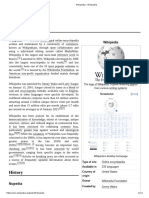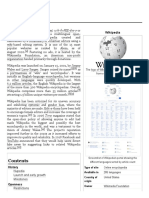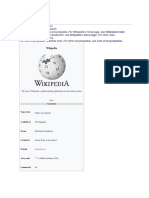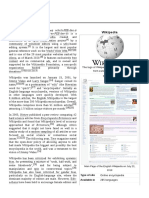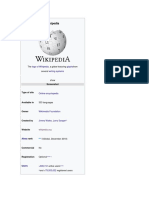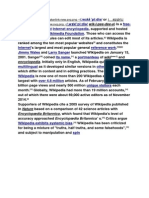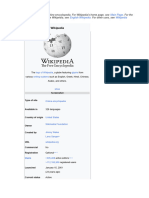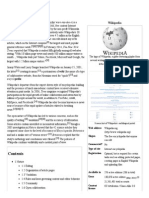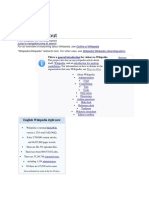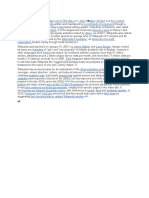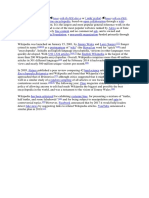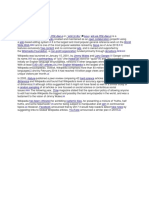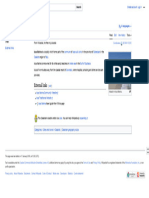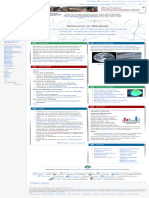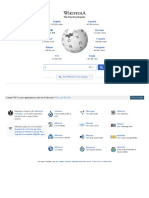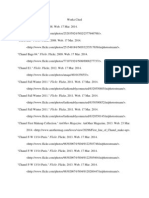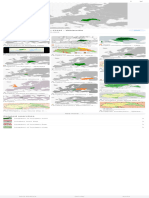0% found this document useful (0 votes)
19 views9 pagesWikipidea Reference Two
Wikipedia is a free online encyclopedia launched in 2001, created by Jimmy Wales and Larry Sanger, and maintained by volunteers through the MediaWiki software. It is available in over 340 languages and has become the largest reference work in history, with more than 65 million articles and 120 million users as of July 2025. Despite its success, Wikipedia has faced criticism for systemic biases and has been censored by some governments.
Uploaded by
backupggddataCopyright
© © All Rights Reserved
We take content rights seriously. If you suspect this is your content, claim it here.
Available Formats
Download as PDF, TXT or read online on Scribd
0% found this document useful (0 votes)
19 views9 pagesWikipidea Reference Two
Wikipedia is a free online encyclopedia launched in 2001, created by Jimmy Wales and Larry Sanger, and maintained by volunteers through the MediaWiki software. It is available in over 340 languages and has become the largest reference work in history, with more than 65 million articles and 120 million users as of July 2025. Despite its success, Wikipedia has faced criticism for systemic biases and has been censored by some governments.
Uploaded by
backupggddataCopyright
© © All Rights Reserved
We take content rights seriously. If you suspect this is your content, claim it here.
Available Formats
Download as PDF, TXT or read online on Scribd
/ 9




